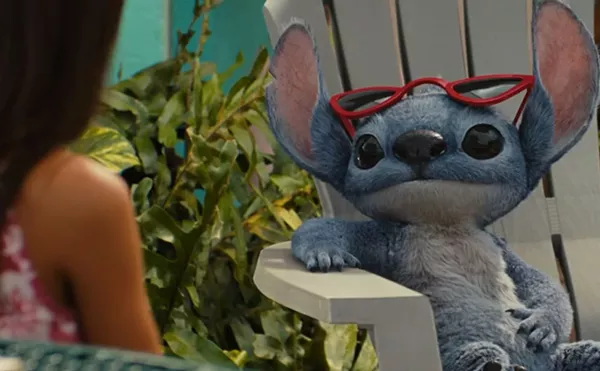
Audio By Carbonatix
[
{
"name": "GPT - Leaderboard - Inline - Content",
"component": "35519556",
"insertPoint": "5th",
"startingPoint": "3",
"requiredCountToDisplay": "3",
"maxInsertions": 100,
"adList": [
{
"adPreset": "LeaderboardInline"
}
]
}
]

Every year or so, we'll check in with Lake Superior State University. For more than 40 years, that Michigan college has released a list of words and phrases that should probably go the way of the dodo. This year's list is as interesting as usual, and has even gone viral. It includes "so" as a sentence-starter, "conversation" in place of "debate," "breaking the Internet," "walk it back," and "manspreading." It also includes comments from submitters explaining why they object these words and phrases.
So we did an unscientific poll on the words and phrases metro Detroiters would like to see less of in 2016. (OK, we posted a status update on Facebook and stole the answers for this.)
The answers broke down into various categories.
For some, the words were surrogates for the things they'd like to see less of:
Man Bun
The lesser of two evils
Kardashian
Donald Trump
Trigger warning
Collateral damage
Executive order
Presidential debate
Governor Snyder
Relentless positive action
Some were shopworn slang that bore the fingerprints of too many marketing executives:
Epic
Radical
Some were Internet slang and text-speak that were finally deemed too stupid:
AF (for "as fuck")
V (for "very)
Fewer commenters objected to the truncated words and extra cutesy exclamations, but those who did were passionate in their condemnation:
Totes
Adorbs
Whatevs
Deets
Fam
Awesome sauce
Amazeballs
Nom (One commenter demanded, "PLEASE STOP THE NOM already!")
Managerial corporate speak was a smaller category this year, but it still got some people's goat:
Going forward
Impactful
Takeaway (as in "What's the takeaway?)
Proactive (One commenter says this word "has walked this world for far too long.")
No problem ("It drives me crazy when a food server or a sales clerk responds to a request by saying "No problem." It is their job. Why would I think there might be a problem?)
Another objection was monikers that tend to sanitize a place:
Midtown
The "D" ("I HATE THAT! It's Detroit!)
Some people even objected to words from the normally sacrosanct precinct of arts and culture:
Curated (as in "thoughtfully chose")
Soft opening (though it was unclear whether the objection was for overuse or the inescapable unsavory double entendre)
Pop-up (as in "pop-up restaurants," "pop-up shops," "pop-up galleries," etc.)
Dropped (as a synonym for "released"? One comment: "I keep waiting to see a newspaper say, 'The U.S. Department of Agriculture has dropped a dire forecast for Florida’s orange crop.'")
English is a flexible and fun language full of nouns that become verbs and vice versa, but the way some giggling ironists have abused it has enraged some people:
Reveal (when used as a noun)
Gifting ("It's called GIVING, people!")
Officing
Adulting (One comment: "When you say 'I don't feel like adulting,' it's pretty fucking obvious ... because what you just said sounds like a 2-year-old. I AM OUTRAGED!")
Then there's the cutesy habit of adding a "y" to words to make a diminutive-sounding adjective. When folks first started doing it, it was neat for a hot minute. For some, it has overstayed its welcome:
Rapey
Cunty ("It cheapens its root word.")
Others were annoying verbal tics that intruded into prose:
I know, right?
My bad. ("That's neither an apology, a comfort, nor a sentence!")
But one of the biggest categories was for those twee, often fragmentary buzzbits one finds on social networking:
Can't even
I can't with that
Sorry not sorry
I'm going to just leave this right here
This ("And by that I mean when people post an item and the only comment is 'This!'")
The effort to digitalize every simple human activity may have begun in the 1970s with "interface" for "talk with," but there were a few contemporary phrases plenty of people think shouldn't be a part of the future:
Hashtag (as in, ironic hashtags, using the actual word "hashtag" where a pound-sign would do, coming up with ungainly, long hashtags to describe simple phenomena)
Life hacks (One person scolded: "They're just tips, people! Here's a tip for you: STOP SAYING LIFE HACKS!")
Some slang words were simply too much for some folks:
Rachted
Bro (especially when pronounced "Bra")
Cray-cray
But the ultimate scorn seemed directed at two words:
Bae
Fleek (or "on fleek")
Why these? Our pal, local author Aaron Foley, offered this thoughtful explanation: "These were words popularized by young black people but didn't become overused until white people at ad agencies and social media firms started using them — like a lot of slang over the past few decades or so."
Thanks, Aaron. That's totally on fleek, bae.





